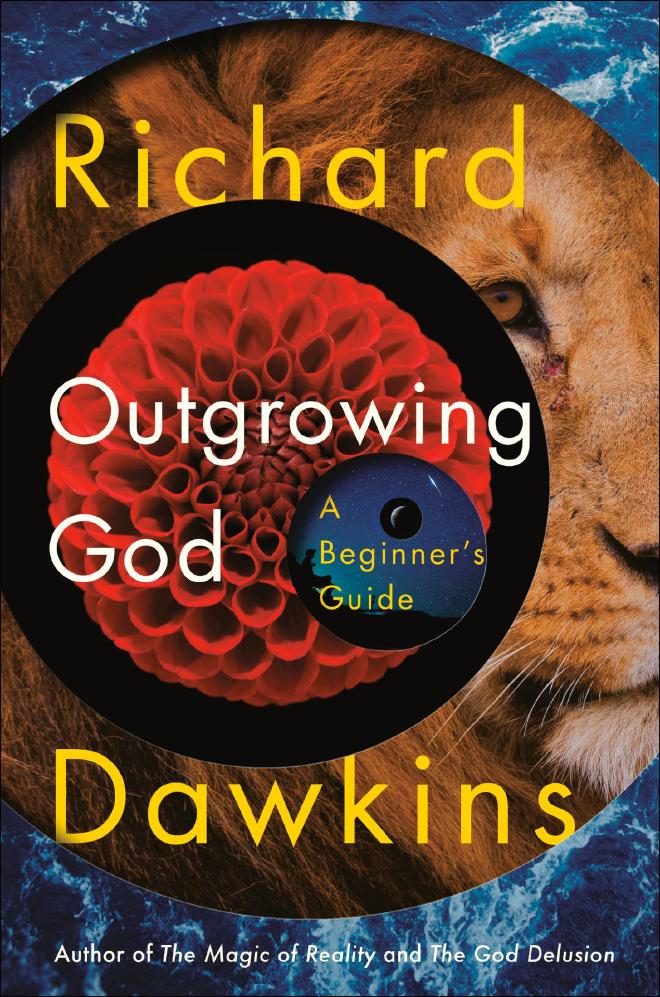Outgrowing God

Table of Contents
Book Details #
- Title: Outgrowing God - A Beginner’s Guide to Atheism
- Author: Richard Dawkins
- Reading Pace: Medium-Fast
- Rating: ★★★★★ (5/5)
- Amazon URL: https://amzn.to/3AVjGkh (Affliate Link)
- Audile URL: https://amzn.to/3B1LTWD (Affliate Link)
Summary #
Outgrowing God is a masterful exploration that transcends its modest subtitle of being a “beginner’s guide.” In this compelling work, Dawkins systematically addresses religious belief, moral philosophy, and scientific understanding through two main parts: the first dealing with religious claims and their origins, and the second exploring the natural world through scientific lens.
The book begins by examining how religious beliefs spread and evolve, using powerful analogies like the “Chinese Whispers” effect. It then progresses to tackle fundamental questions about morality without religion, before diving into clear, accessible explanations of evolution, DNA, and the natural world.
Critical Analysis #
One of my favourite scientists of all time, Carl Sagan told, “Extraordinary claims require extraordinary evidence”. Dawkins himself quotes this in this book and diligently follows this principle throughout the book.
Strengths #
- Complex concepts explained with remarkable simplicity
- Effective use of modern examples to illustrate historical processes. For example, Dawkins uses the 9/11 misinformation to demonstrate myth formation (chinese whispers effect)
- Clear progression of ideas
- Evidence-based approach and progresses to conclusions logically
- Dawkins is a master at using wit and humor effectively, yet maintain a serious tone throughout the book through clever analogies
- Demonstrations of how moral standards evolve
Weaknesses #
- Primarily focusses on christianity and very limited discussions of other religious traditions.
- Western-centric examples. If you weren’t brought up in the west, you have to manually translate the examples to your own cultural belief systems.
- For the religious folks out there, you might be deeply offended.
Detailed Review #
“Outgrowing God” distinguishes itself through Dawkins’ unwavering commitment to clarity and truth. The book’s structure alternates between questioning religious claims and explaining natural phenomena, creating a powerful contrast between supernatural beliefs and scientific understanding.
The first part’s analysis of how religious myths originate and spread is particularly compelling. Using the example of 9/11 misinformation, Dawkins brilliantly illustrates how myths can form even in modern times with abundant documentation. This sets up a powerful argument about how religious stories could have evolved in ancient times without any documentation.
The book’s treatment of morality is especially noteworthy. Through examples like the Tenth Commandment’s treatment of women as property, Dawkins effectively demonstrates how moral progress often happens despite, not because of, religious texts. His dialogue between an absolutist and a consequentialist provides a clear framework for understanding different approaches to moral decision-making.
The second part of the book shines in its explanation of scientific concepts. Dawkins’ explanation of DNA, proteins, and amino acids manages to be both comprehensive and accessible, a rare achievement in a book about atheism. His treatment of evolution and natural selection is clear, using effective analogies that make complex concepts understandable without oversimplification. Dawkins talks a lot about Bottom-up Design and explains (with real life photos) of a termite mound that strikingly looks like a Cathedral. The way he explained the emergence of complex systems without a designer was remarkable.

Personal Impact #
The book’s impact goes beyond its intellectual arguments. Its courage in taking clear stances on difficult questions provides a model for honest intellectual discourse, especially for me, after reading, The Righteous Mind by Jonathan Haidt, where the author equivocates and doesn’t clearly take a side.
Growing up in a religious family, even after giving up religion, I always had a “What if God really existed and I get to see him/her after I die?” Dawkins addresses this lingering “but what if…” doubts that I and many former believers experience, in a very powerful way providing both emotional and logical tools for dealing with religious anxiety. After reading this book, I can clearly say, I’m no agnostic, but clearly an atheist. After reading this book, Dawkins joins my “favourite authors” list!
Key Insights #
- Religious stories evolve through retelling, similar to how modern myths form
- Translation errors have significantly impacted religious beliefs
- Childhood indoctrination plays a crucial role in belief persistence
- Morality exists independent of religion and moral progress comes from rational ethical thinking.
Notable Quotes #
Romans at one time said the early Christians were atheists because they didn’t believe in Jupiter or Neptune or any of that crowd.
Some studies suggest that religious people give more generously to charity. Many give to their churches in the form of ’tithes’ (meaning a tenth of their income). And churches often pass on some of that money to worthwhile charitable causes like famine relief. Or to crisis appeals after terrible disasters like earthquakes. But a lot of the money gathered by churches goes to fund missionaries. They call it charitable giving. But is it charity in the same sense as, say, famine relief or helping people made homeless by earthquakes? Giving money for education seems a good thing to do. But if that education entirely consists of learning the Quran by heart? Or missionaries teaching children to forget their tribal heritage and learn the Bible instead?
If I’d been born in ancient Greece I’d worship Zeus and Aphrodite. In modern times, if I’d been born in Pakistan or Egypt I’d believe that Jesus was only a prophet, not the Son of God as the Christian priests teach. If I’d been born to Jewish parents I’d still be waiting for the Messiah, the long-promised saviour, instead of believing that Jesus was the Messiah as my Christian schools taught. People growing up in different countries copy their parents and believe in the god or gods of their own country. These beliefs contradict each other, so they can’t all be right.
the Tenth Commandment counts the neighbour’s wife, and his servants, among his possessions, like his house or his ox. What do you think of the idea that a woman is the property of some man: one of his possessions, a ’thing’ that he owns? […] Well, of course, the Ten Commandments are out of date. It’s unfair to blame the Bible for being written thousands of years ago when men owned their wives, and their most prized possessions were their slaves. Of course we’ve moved on since those bad old days. But isn’t that the whole point? Yes, we have moved on. And that’s precisely why we shouldn’t be getting our morals, our ‘right and wrong’, our ‘do and don’t’ from the Bible
The number of molecules of air in a lung is hugely greater than the number of lungs in the world. You have almost certainly breathed in atoms that were breathed out by Adolf Hitler. And Hitler’s secretary reported that he had bad breath.
“OH MY GOD, THERE IS NO GOD!”
Recommendations #
This book is essential reading for:
- Those questioning religious beliefs or dealing with religious anxiety.
- Those exploring the relationship between morality and religion
- Anyone interested in understanding how religious ideas spread and evolve
While religious readers might find some passages challenging, the book’s clear arguments and evidence-based approach make it valuable even for those who ultimately disagree with its conclusions. Its combination of intellectual rigor and accessible explanation sets a new standard for books addressing the intersection of science, religion, and morality.